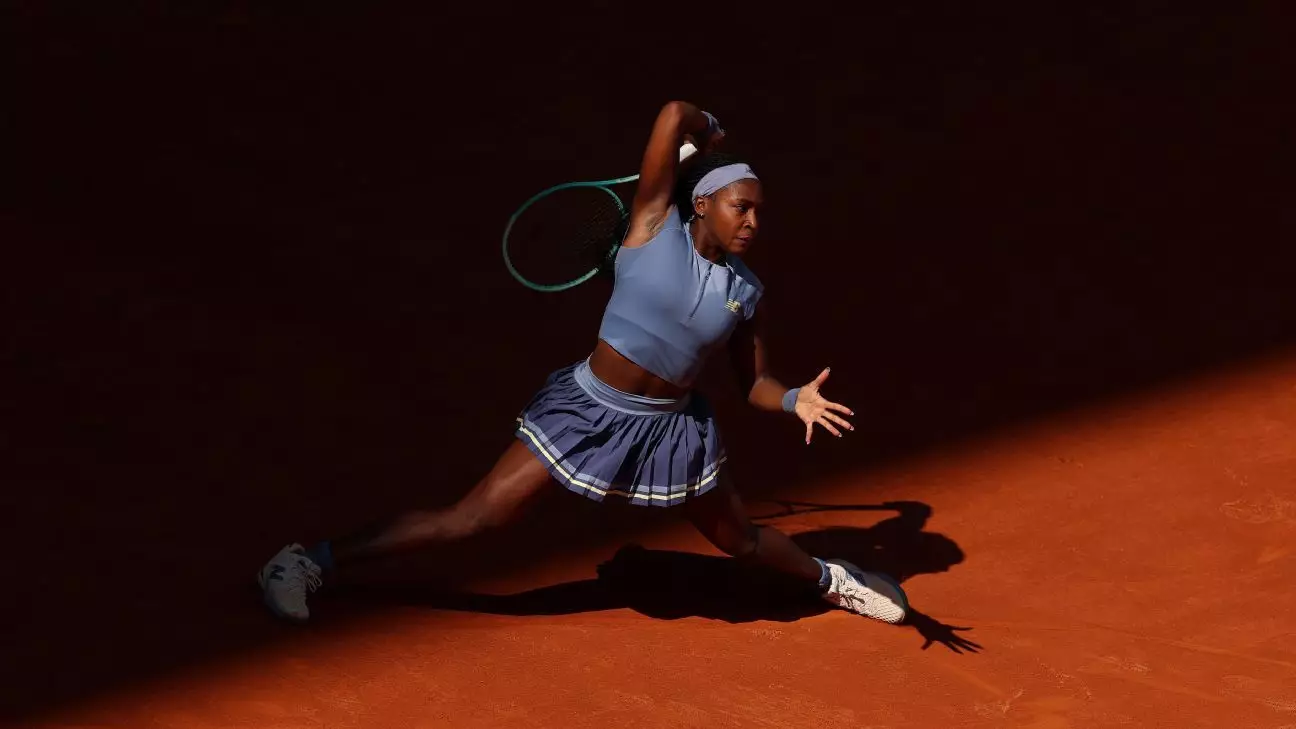In a stunning display of talent and tenacity, Coco Gauff dismantled defending champion Iga Swiatek with a resounding 6-1, 6-1 victory, marking her first entrance into the Madrid Open singles final. Gauff, currently ranked fourth, showcased her aggressive mentality throughout the match, decisively breaking Swiatek’s serve five times over just 64 minutes. While some may dismiss Swiatek’s performance as subpar, it is crucial to acknowledge the way Gauff forced the number two player in the world into uncomfortable positions. With this triumph on clay, Gauff has seemingly turned the tide in their ongoing rivalry, upping her record to 3-0 against Swiatek since the 2024 WTA Finals.
Gauff’s success defies expectations and adds another layer to her burgeoning legacy. The gravity of her win lies not just in the scoreline but in the broader context of women’s tennis, where young athletes like Gauff are shattering barriers and expectations. Gauff’s assertive game and mental toughness served as a stark reminder that she has quickly become a formidable force on the WTA tour.
Swiatek’s Struggles: An Unexpected Lapse
On the other side of the net, Swiatek appeared rattled and uncertain, which is atypical for the talented Polish player. This match marked a rare occasion where she succumbed to pressing circumstances, evident from a code violation for audible obscenity—a momentary lapse that perhaps mirrored her overall performance. Swiatek herself expressed frustration and a sense of defeat, stating, “I couldn’t really get my level up,” suggesting that her mental readiness was an issue as much as her physical preparation.
Moving poorly and lacking the ability to transition between shots cost her dearly, leaving her feeling like her “toolbox” was empty on that day. Swiatek’s reflection on her movement issues and the lack of a viable Plan B showcased a vulnerability seldom seen from athletes of her caliber. For a player who has dominated the courts, such a tumble raises questions about resilience during times of pressure—a crucial element that can make or break champions.
Training and Mental Fortitude: The Path Forward
As Swiatek contemplates her shortcomings post-match, she is faced with a critical decision: adjust her training approach or risk becoming enveloped by the mental weight of expectations. Her admission that she feels “heavy” on the court reveals the psychological toll of performance pressure. She noted how usually instinctual movements now require deliberate thought and effort, a red flag for any elite athlete.
This introspection is vital. The world of professional tennis, with its relentless competition, demands that players possess not only skill but also mental fortitude. Swiatek’s candid acknowledgment of her struggles serves as a reminder of the complexities athletes face, particularly when they are the reigning champions expected to perform flawlessly. Moving forward, it will be interesting to see how Swiatek alters her strategies to regain her competitive edge.
Gauff’s Road to Glory: A New Rivalry Brewing
As Gauff prepares for her upcoming final against either Aryna Sabalenka or Elina Svitolina, she stands on the cusp of a pivotal moment in her career. Winning in Madrid could be a defining achievement that propels her into the elite tier of women’s tennis superstars. Gauff’s recent form suggests that she is not merely a young prodigy but a well-rounded player ready to rival the game’s best.
The potential rivalry between Gauff and Swiatek, alongside the rising presence of players like Sabalenka, creates an exciting, dynamic landscape for women’s tennis. Fans and analysts alike will be keeping a close eye on this new generation of athletes, who are undoubtedly shifting the conversation around female empowerment in sports. The energy Gauff brings to the court, combined with her strategic prowess, positions her as not just a challenger but as a potential trendsetter in the WTA.
Looking Ahead: An Intriguing Tournament Environment
The Madrid Open, while a celebrated event on the clay circuit, recently faced challenges like a major blackout affecting many matches. Despite such setbacks, the tournament exemplifies resilience and adaptation—a fitting metaphor for the players involved. As Coco Gauff and her contemporaries continue their ascent, the eyes of the tennis world will closely monitor how they handle both victories and defeats, building a narrative that is as compelling as the sport itself.
With each passing match, the stories of these athletes shape not just their careers, but the future of tennis as a whole. Gauff’s powerful ascent, mired in the complexities of sport, leaves little doubt that she is prepared to be a pivotal player in the narrative of modern women’s athletics.

